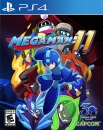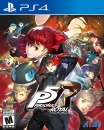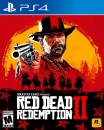| RolStoppable said: Yes, I believe it because the sales data makes it very hard to come to a different conclusio. Top sellers on the SNES were dominated by 2D platformers (Super Mario World, Super Mario All-Stars, Donkey Kong Country), just like it was the case on the NES. That's a pretty clear indicator of what the audience likes the most. Neither Mario or Donkey Kong got sequels on the Nintendo 64, so when the main reason to own a console goes missing, it raises the chances dramatically that someone decides to skip a console altogether. |
As much I do believe those were by far the most popular games and genres during NES/SNES era, still hard to believe the lack of those games were the reason for N64/GC downfall. PS1 top sellers were not 2D platforms, so while there was a huge demand for that genre the size of console market showed market was ready to accept alternative games, games Nintendo 64 didn't get because Nintendo falsely believe their 1st party was all that matters
The point that I need to point out it NES/SNES players didn't skipped 64 and Game Cube and dropped gaming waiting for the day when they would play 2D Mario and Donkey Kong again. They skipped Nintendo and bought another console instead (Sony, mostly)
Now I need to empathize while 3rd party is really important (and the reason for N64 and GC failure, as Sony just made a much better job with 3rd parties so no point buying a Nitendo), but I also don't think 3rd party support is the reason behind a console success
Nintendo success from DS-sucess onward comes from hardware-software integrate experience alternative to the old and formulaic experience Sony and Microsoft was oferring, hence 8 out of 10 of best of Wii best sellers were all games know for the use of motion controls. Wii U hardware-software experience wasn't as good, with abysmal 3rd party supprt and first party wasn't the best either, so sales dropped like rocks. It was pretty much a worse a Game Cube, as Game Cude at least got some 3rd party support
Microsoft tried the same hardware-software experience strategy with kinect and shipped over 35 million copies of it in short time, but without quality games using the technology it just become useless pretty fast. Why does it matter? Well, because even if Xbox was born to bring PC games to home consoles they were still able to put their fingers in other market segment. As long the company is efficient and release quality products (and of course, know how to market it) people will pay for it
In this sense, it's not like customers expect a specific kind of games from Nintendo, it's just Nintendo constantly failed (and now they aren't even trying anymore) to build a good enough 3rd party support and to release more PC/cinematic games like Sony or Microsoft (or even PCs), so customers who wants this kind of games goes from those platforms. Meanwhile Nintendo is much stronger doing everything else. Among top 10 of Switch you will find a life simulator, a racing game, a multiplayer shooter, a party game, an RPG, an open world adventure game, a 2D platform, a 3D platforming, a fighting game. It's just too diverse comparing to PS4 (9 action adventures) or even XBONE (6 shooters)
So in all, it's not like "3rd party don't matter for Nintendo" as you make sound the real truth is 3rd party matters to anyone, but as Nintendo lose this market for Sony and MS they found another way to become a bigger market player.























































